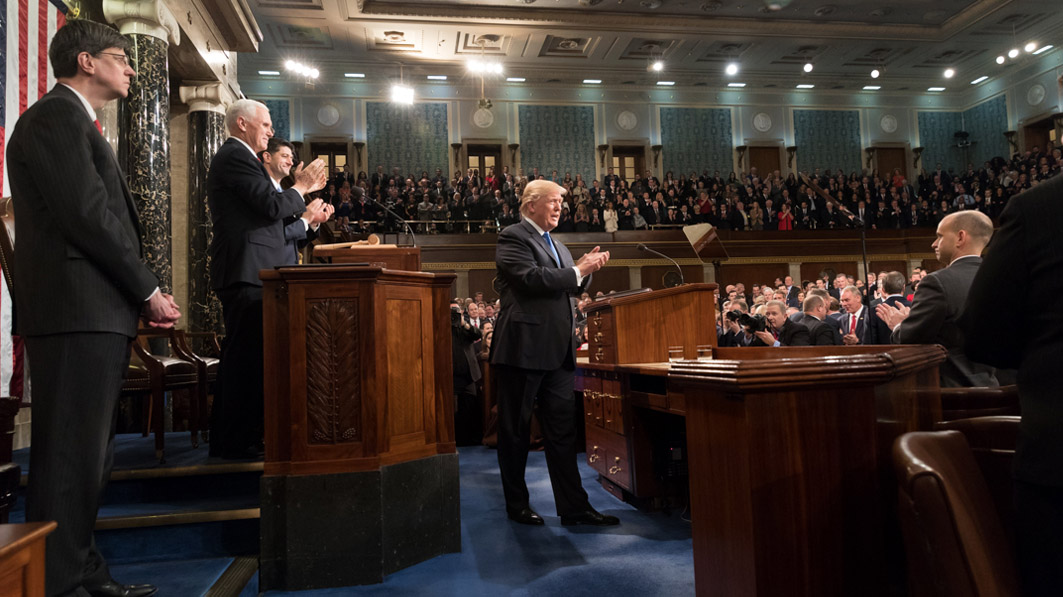Speaker of the House Nancy Pelosi made political waves this week in Washington, D.C. after sending a letter to President Trump asking him to either postpone the January 29 State of the Union Address to a joint session of Congress, or simply send a written message instead. Her reasoning? The current partial shutdown of the federal government may hinder security preparations for the event.
While Pelosi’s letter may have more to do with politics than concern over security, her actions do beg the question: What are the requirements for the State of the Union message?
The U.S. Constitution sets forth the parameters the Framers thought to give to such a message. Article II, Section 3 says only this: “He (the President) shall from time to time give to Congress information on the State of the Union, and recommend to their consideration such measures as he shall judge necessary and expedient.”
Notice that neither the frequency of (“from time to time”), nor the means of communicating the State of the Union message (“give … information”) requires it be given annually, nor does it require a speech to a joint session of Congress. The typical State of the Union address we see today has evolved through the interplay of politics, tradition, and each President’s preferences.
President George Washington, for example, delivered the first State of the Union message in a speech to a joint session of Congress in 1790. President Thomas Jefferson, however, rejected the vehicle of a speech as too closely resembling a European monarch’s annual “speech from the throne,” and instead sent a written message to Congress. That practice continued until 1913, when President Woodrow Wilson re-established the address to a joint session of Congress, which has continued off and on to today.
So, can Speaker Pelosi stop the State of the Union message from occurring? No, the message is the constitutional mandate and prerogative given to the President.
Can she prevent the State of the Union message from being delivered in the House of Representatives in a joint speech to Congress? Technically, yes. The Constitution does not require any particular house of Congress to host the message, and Pelosi is within her authority as Speaker to disinvite President Trump.
There is already a suggestion that the Senate might be the forum for the President’s speech. Or the President could give an address from the Oval Office. Or at a rally. Or he could mail a copy to Congress if he so chooses. The Constitution’s requirements allow maximum flexibility for the “how” and “when” of the State of the Union; there’s no reason why the political maneuvering behind the current dispute should derail the President’s message.






